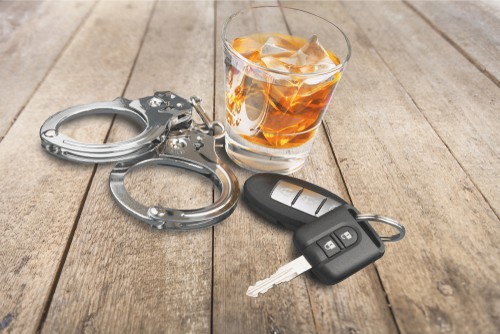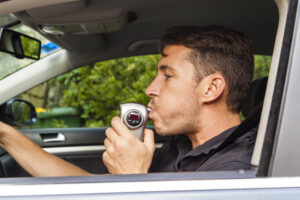
Texas Penal Code Ch 106.041 is the state’s zero-tolerance law for minors caught driving or operating a watercraft under the influence of alcohol. If a law enforcement officer cited you for driving under the influence of alcohol (DUIA) or boating under the influence of alcohol, you do not have to fight these charges on your own.
If you have been charged with this offense, securing a defense attorney can help you protect your rights as you move through the legal process. The team from Law Offices of Randall B. Isenberg will review your case and develop a defense strategy that could lead to a favorable outcome. We can speak with you about your charges during a free and confidential consultation.
Texas Law Is Strict on Underage Drinking and Driving
Chapter 106 contains the age-related provisions of Texas’ Alcoholic Beverage Code. More specifically, Texas Penal Code § 106.041 covers the driving or operation of watercraft. The legal limit for minors in Texas is 0.0. Therefore, if the police stop someone between 18 and 21 who tests positive for any amount of alcohol in a blood alcohol concentration (BAC) test, they will likely face this charge.
Generally, when an adult is stopped for drunk driving, the police arrest them and take them into custody. With a DUIA for a minor, however, the officer does not have to conduct an arrest. Instead, they may:
- Issue a citation
- Require a court appearance before a magistrate
- Ensure the minor has a safe ride home
You might not immediately go to jail after violating the law, but you could face serious consequences if convicted. This is especially true if you have previous convictions.
Facing Penalties After a Texas DUIA Conviction
The penalties a person faces in a DUIA case in Texas depend on their age. For a first offense, the consequences may hit you in the pocketbook. These offenses are at least a Class C misdemeanor.
If convicted, you will face a fine of up to $500, per Texas Penal Code § 12.23. However, if you have two or more previous convictions of a related crime, you could face more serious penalties, such as:
- A fine of between $500 and $2,000; and/or
- Up to 180 days in jail
In addition, Texas DUIA laws make it mandatory for any minor convicted of a DUIA charge to complete 20 to 40 hours of community service for a first offense or 40 to 60 hours if there is a previous offense. This community service must be related to alcohol abuse education, prevention of abuse, or a related topic.
How Law Offices of Randall B. Isenberg Can Help Your Case
For more than 30 years, Texas criminal defense attorney Randall B. Isenberg has served his community. He even spent some time as a prosecutor and state district judge, so he understands how the Texas court system works from the inside out.
Attorney Isenberg uses this experience to navigate the system and fight for a fair and favorable outcome for our clients. When you hire our firm, we will:
- Explore your options for deferred disposition, which is for Class C misdemeanor offenses in Texas
- Look into the circumstances that led to your stop and citation
- Develop a strategic plan to pursue the most favorable outcome possible based on the facts of your case
Using the evidence we find, our team will identify the best course of action for fighting your charges.
Potential Strategies for Handling Your DUIA Case
Our Texas DUIA attorneys may be able to:
- Prevent charges from being pressed against you
- Get the charges against you reduced or dropped
- Negotiate a plea deal for a lesser charge
- Explore other legal options available to you
- Fight your case to court
If you are a first-time offender of Texas Penal Code § 106.041, you may have options that allow you to move on from your mistake. When our team reviews your case, we can explain your legal options before developing a strategy to clear your name or mitigate the penalties you face.
What Does Deferred Disposition Mean?
In Texas, deferred disposition refers to an alternative method that holds first-time underage DUIA offenders accountable. It applies only to Class C citations, which the court can dismiss if your case meets certain conditions.
Deferred disposition also gives Class C defendants the option of having a DUIA charge removed from their record permanently. However, minors who have three or more subsequent DUI-related convictions are not eligible for deferred disposition.
Possible Defenses in an Underage DUI/ DUIA Case in Texas
As your defense team, our goal is to protect your rights as you seek due process. We will look at all the facts, circumstances, and evidence in your case to choose the best defensive approach.
There are several DUI defenses that we could use as we challenge the charge(s) brought against you. Some that could apply to your case include:
- You were not read your Miranda rights after your arrest.
- You were not drinking or operating a watercraft at the time.
- Officers administered the BAC or field sobriety test improperly.
- The BAC test results were wrong.
- You may have a medical condition that could create an appearance of drunkenness or drunk behavior.
- State rules of civil procedure and evidence were violated.
These are just a few examples of what a defense strategy could look like in your case.
It is worth noting that if you were operating a powered watercraft, a police officer is legally allowed to stop you and conduct a safety check of the vessel. You do not have to be acting strange or under the influence for an officer to have probable cause to stop you – this is different from being stopped while driving a motor vehicle.
Talk to Our Texas DUIA Criminal Defense Team Today
At Law Offices of Randall B. Isenberg, a team member is standing by to take your call. When you reach out, we will help you understand your rights, the charges you face, and how we can approach your case to fight for the most favorable outcome.
Our attorneys may be able to help you get a deferred disposition or prevent you from being convicted on an alcohol-related charge. Call us today at (214) 696-9253 to get started by discussing your case with a member of our team for free.








